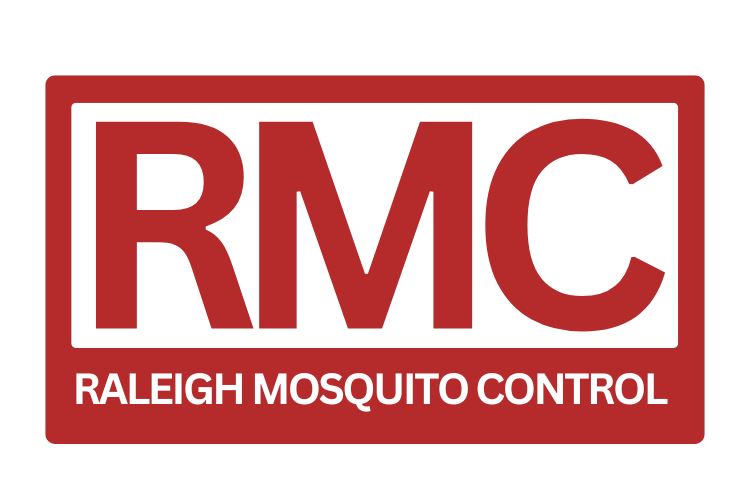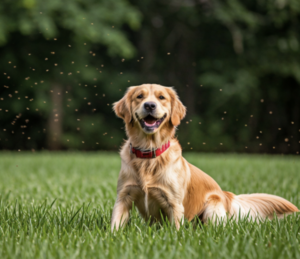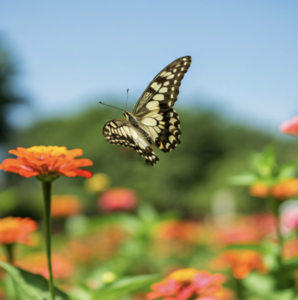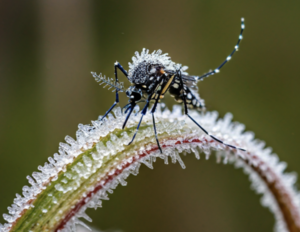
Mosquito control is a critical aspect of public health and outdoor comfort, especially in areas like Raleigh, North Carolina, where these pesky insects can be a significant nuisance. However, as we strive to manage mosquito populations, it’s essential to consider the potential impact on beneficial insects, particularly bees.
Keep reading to learn more about the relationship between mosquito control methods and bee populations, and how pest control companies like Raleigh Mosquito Control are making strides to have responsible pest management practices!
How Does Mosquito Spraying Affect Bees and Other Pollinators?
Mosquito control efforts, while necessary for human health and comfort, can have unintended consequences on other insect populations, including bees and other pollinators. The impact of mosquito spraying on bees mainly depends on which type of pesticides are used, the application method, and the timing of the treatments.
Many broad-spectrum insecticides used for mosquito control can be harmful to bees if they come into direct contact with the chemicals. This includes the options you can find at your local hardware store like Lowes and Home Depot.
These pesticides may affect bees’ nervous systems, impair their ability to navigate and forage, or even cause death in severe cases. However, it’s important to note that not all mosquito control methods pose the same level of risk to bees.
Professional pest control companies, like Raleigh Mosquito Control, often use targeted approaches and EPA-approved products that are designed to minimize harm to non-target species. These methods can significantly reduce the potential negative impact on bee populations when compared to indiscriminate spraying of broad-spectrum insecticides.
Are There Mosquito Control Methods That Are Safe For Bees?
Fortunately, there are several mosquito control methods that can be effective while posing minimal risk to bees and other beneficial insects. These bee-friendly approaches focus on targeting mosquitoes specifically, rather than using broad-spectrum pesticides that can harm a wide range of insects.
One such method is the use of mosquito larvicides in standing water sources. These products target mosquito larvae before they develop into adult insects, and many formulations have little to no impact on bees, which do not breed in water.
Another effective approach is the use of mosquito traps that attract and capture adult mosquitoes without harming other insects. These traps often use CO2, heat, or specific light frequencies to lure mosquitoes, making them highly selective in their targets.
Biological control methods, such as introducing natural predators like mosquitofish in water features, can also help manage mosquito populations without affecting bees. Additionally, some companies offer barrier treatments using products derived from natural ingredients, such as essential oils, which can repel mosquitoes while being less harmful to bees and other beneficial insects.
What Time of Day is Safest for Mosquito Spraying to Protect Bees?
Timing is crucial when it comes to minimizing the impact of mosquito control on bee populations. Bees are typically most active during daylight hours, particularly in the morning and early afternoon when they’re out foraging for nectar and pollen.
To protect bees, it’s best to conduct mosquito spraying in the late evening or early morning hours when bees are less active and have returned to their hives. This timing aligns well with mosquito control efforts, as many mosquito species are most active during dawn and dusk.
Professional pest control services often schedule their treatments during these optimal times to maximize effectiveness against mosquitoes while minimizing exposure to bees. By applying pesticides when bees are not actively foraging, the risk of direct contact with the chemicals is significantly reduced.
How Can Homeowners Contribute to Bee-Friendly Mosquito Control?
Homeowners play a crucial role in balancing effective mosquito control with bee conservation. There are several steps individuals can take to reduce mosquito populations on their property while protecting bees:
1. Eliminate standing water: Regularly inspect your property for sources of standing water, such as clogged gutters, birdbaths, or old tires, and remove or treat these areas to prevent mosquito breeding.
2. Use natural repellents: Plant mosquito-repelling herbs and flowers like citronella, marigolds, and lavender around your outdoor living spaces. These plants can help deter mosquitoes without harming bees.
3. Encourage natural predators: Create habitats that attract mosquito predators like bats, birds, and dragonflies to your yard.
4. Support bee populations: Plant a variety of native, flowering plants that provide food sources for bees throughout the growing season.
5. Hire a Professional Mosquito Control Company: Partnering with a reputable mosquito control service in Raleigh, NC, like Raleigh Mosquito Control can provide more comprehensive and targeted solutions. Professional companies have access to advanced products and techniques that can effectively control mosquito populations while minimizing impact on bees. They can develop customized treatment plans that take into account your property’s specific needs and the local ecosystem, ensuring a balance between mosquito control and bee protection.
By implementing these strategies, homeowners can contribute to effective mosquito control while also supporting local bee populations and other beneficial insects.
How Can Professional Pest Control Services Balance Mosquito Control and Bee Protection?
Professional pest control services, like Raleigh Mosquito Control, are at the forefront of developing and implementing strategies that effectively manage mosquito populations while minimizing harm to bees and other beneficial insects. These companies employ a variety of techniques and best practices to strike this crucial balance:
- Integrated Pest Management (IPM): This approach combines multiple control methods, focusing on prevention and targeted treatments rather than broad-spectrum pesticide applications.
- Selective product use: Professionals choose EPA-approved products that are effective against mosquitoes but have minimal impact on non-target species like bees
- Precision application: Using advanced equipment and techniques, pest control professionals can apply treatments with greater accuracy, reducing overall pesticide use and potential exposure to beneficial insects.
- Education and communication: Reputable pest control services educate their clients about the importance of bee conservation and how to contribute to bee-friendly mosquito control efforts.
- Continuous training and research: Professional pest control companies stay updated on the latest research and technologies in mosquito control and bee protection, continually refining their methods to improve effectiveness and environmental stewardship.
By working with professional services that prioritize both mosquito control and bee protection, property owners can effectively manage mosquito populations while supporting the health of local ecosystems.
You Can Trust Raleigh Mosquito Control For Responsible Mosquito Management
While mosquito control is essential for public health and comfort, it’s equally important to consider the impact on beneficial insects like bees. By employing targeted, bee-friendly control methods, timing treatments appropriately, and working with responsible pest control professionals, we can effectively manage mosquito populations while protecting the vital pollinator species that our ecosystems depend on.
Through education, awareness, and the adoption of integrated pest management practices, communities like Raleigh can achieve a balance between effective mosquito control and the conservation of bee populations. Contact the professionals at Raleigh Mosquito Control to get a personalized quote today!







